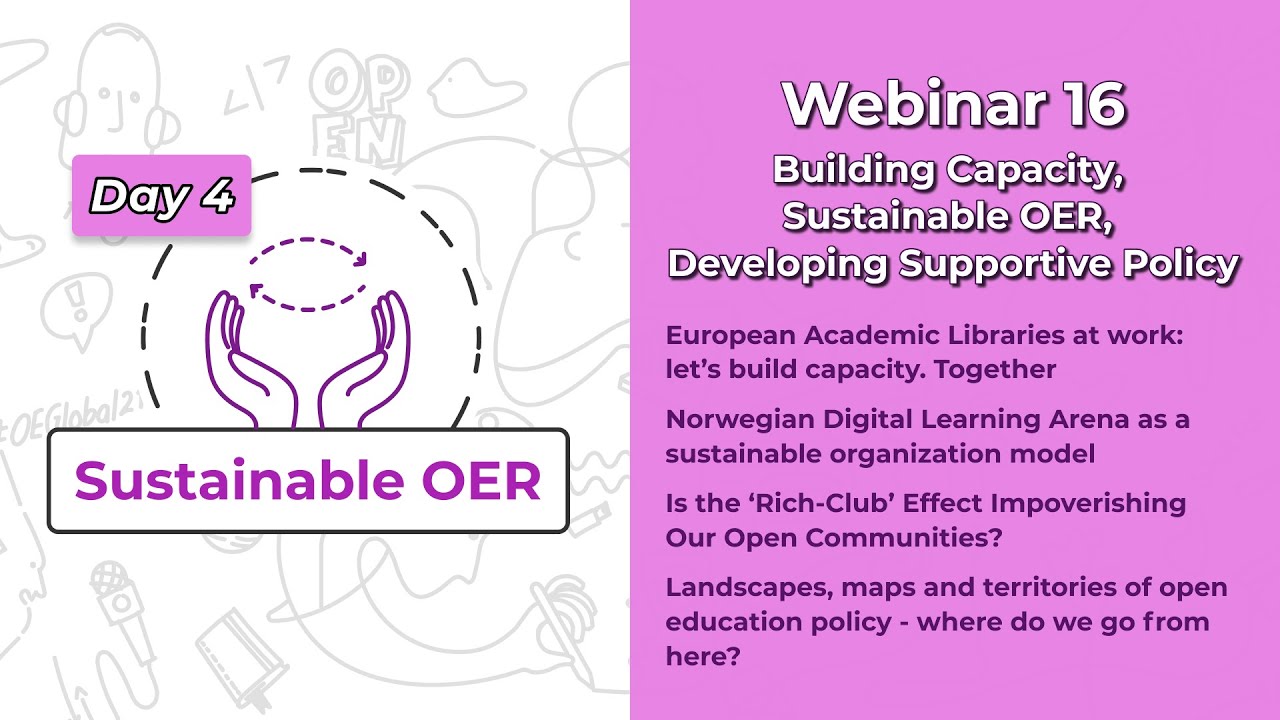Max Mahmoud Wardeh (Open Knowledge Connective), Sarah Hutton (University of Massachusetts Amherst)
The creation of knowledge in educational contexts has traditionally been under the authority of the socioeconomically, geographically, and contextually privileged. Maintaining current power structures in knowledge production, transformation, and transfer hinders community and network development across the education and public sectors, impeding human progress. There are several barriers that contribute to maintaining the exclusionary realm of knowledge production, which we identify as stemming predominantly from elitist institutional cultures.
Developing the Knowledge Commons should be, at its heart, an act of community building. However, Gasparini et al. (https://tinyurl.com/kpeum8u8) unpack the impact of the ‘rich-club’ phenomenon on open source projects as one where contributors with a high number of collaborations (i.e., strongly connected within the collaboration network) are likely to cooperate with other well-connected individuals. The findings of this research indicate that the presence or absence of a ‘rich-club’ has an impact on the sustainability and robustness of the project.” This is the kind of phenomenon that has a direct impact on nurturing the creation of sustainability models for OER (Area of Action IV of the UNESCO Recommendation on OER). We’re interested in exploring how OER projects can be sustainable without creating exclusionary ‘rich-clubs’.
Access and acceptance into communities are based on exploiting connectivity patterns, and valuable expertise is lost through exclusionary credentialing and access to open knowledge production working groups. Value judgement in peer-to-peer commons-based contributions is necessary to ensure the relevance, applicability, and sustainability of a project. When making this value judgement, a project maintainer must strike a balance between ensuring contribution usefulness on the one hand, and not creating artificially high systemic barriers for entry into the project’s community of contributors on the other. A project maintainer’s institutional culture, standards by which they judge contributions, and understanding of ‘necessary’ credentialing can establish biases. This systemic bias excludes contributions from underrepresented groups who have been systemically prevented from gaining the credentials necessary to participate and feel welcomed in academic, as well as peer-to-peer production spaces.
In this session, we will be exploring ways of moving away from relying on ‘expert’ credentialing in OER project contributions toward an open and welcoming peer community. This discussion will be contextualized towards building something practical that helps address these larger issues of systemic bias and barriers to contribution.
The intent of this session is to establish an ongoing dialog about how we can dismantle barriers that can prevent collaborative international contributions to OERs, and/or how to provide the tools to overcome those barriers when dismantling them is not an option. We are hoping that emergent themes from these conversations will contribute to an ongoing, multi-conference, multi-event series of sessions, each building on the output of the previous ones. Participants will engage in the co-discovery and unpacking of barriers; the presenters will facilitate the conversation not only in this session, but also continue to support and grow an inclusive international community of OER advocates, developers, and stakeholders interested in understanding and mitigating the effects of ‘rich-club’ behaviour.
Extended abstract: OE_Global_2021_paper_117.pdf 📄
Webinar Information
This presentation is part of Webinar 16 Building capacity, Sustainable OER, Developing supportive policy taking place in your local time → .
Webinar Access (registered conference participants only):
![]()
![]() Go to Webinar 16
Go to Webinar 16
UNESCO OER Action Area: Building capacity, Sustainable OER, Developing supportive policy
Language: EnglishSee the other presentations that take place in this webinar.
Presentation Recording
Participate
Before the webinar the authors will be asked to reply below with links to their presentation materials, related videos, and other relevant links, as well as prompts for discussion here.
For anyone that missed the live session, an archive will be posted here as soon as possible.
Conference participants are urged also to reply below with questions, comments for the presenters or to share related resources.
